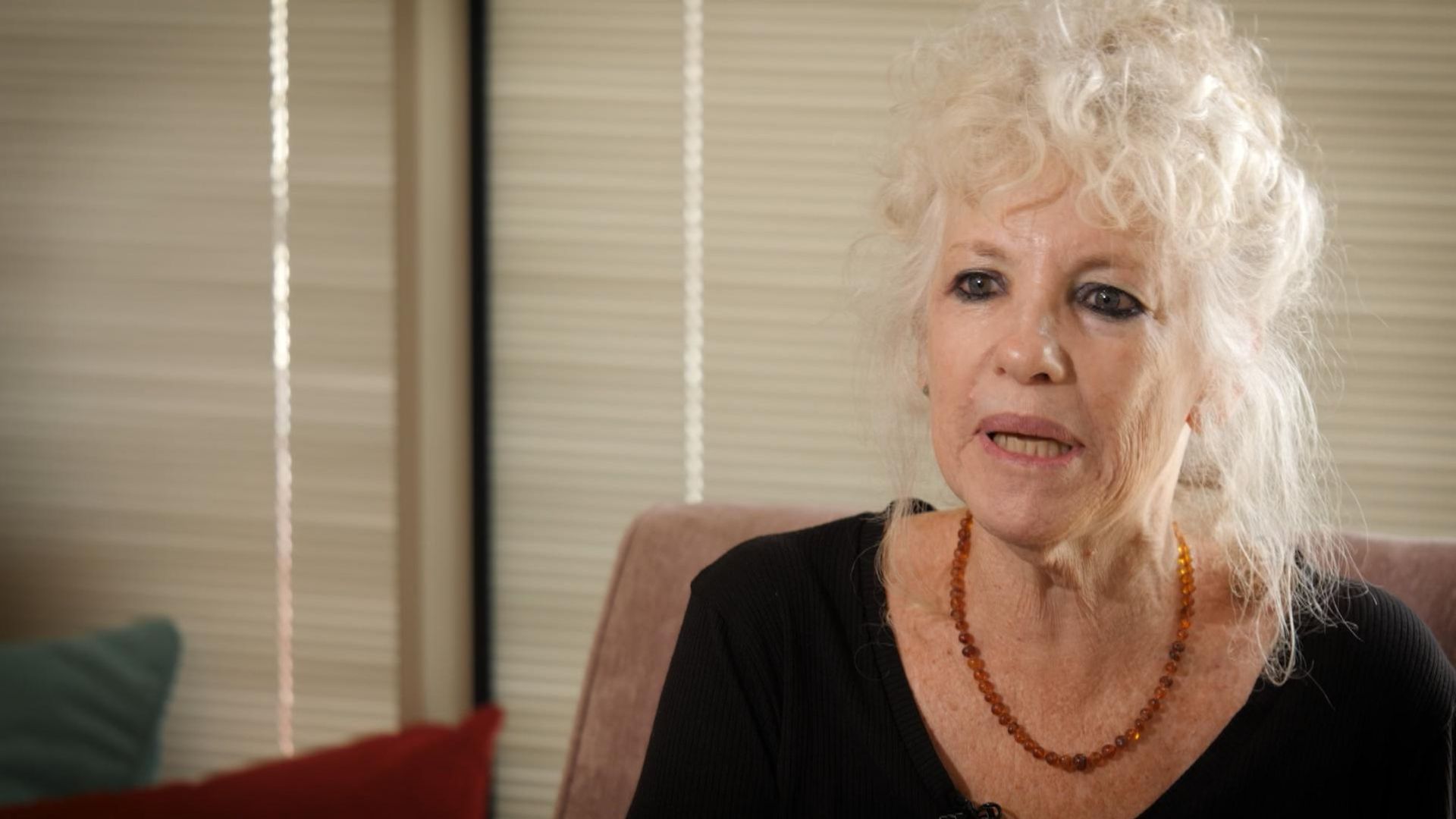In the 1990s, Anat Saban joined a movement of mothers that rose up to protest against their sons being sent to fight in Israel’s first war against Hezbollah in Lebanon.
“We were accused of thinking from our womb,” she told Sky News. Her son served in Lebanon from 1996 to 1997.
“[But] I think that our advantage is that on top of thinking from our heads we think from our womb.”
Peaceful demonstrations by the so-called Four Mothers group helped to pressure the then government finally to withdraw Israeli troops from their northern neighbour in 2000.
Middle East latest: Syrian capital ‘hit by Israeli missiles’
Please use Chrome browser for a more accessible video player
More than two decades later, though, with boots back on the ground inside Lebanon, Anat, aged 76, says she is wary about the mission and worried for their safety.
But she is no longer completely opposed to the war after the 7 October atrocities by Hamas in southern Israel last year left her terrified that Hezbollah could launch the same kind of cross-border rampage where she lives in the north – unless the militants are stopped.
Israel has published hundreds of airstrike videos – but they only tell part of the story
Israel has published hundreds of airstrike videos – but they only tell part of the story
Israel has published hundreds of airstrike videos – but they only tell part of the story
“I’m afraid they’ll come from tunnels, with parachutes, something that’s beyond our control,” she said. “The fear is so deep that I don’t know if I can recover from it.”
‘Home is the most beautiful place’
The terror prompted her and tens of thousands of other Israelis to flee their homes across northern Israel a year ago.
Anat is now living in a rented apartment with her husband in Tel Aviv and is unsure whether she will ever feel safe enough to return to her hometown of Shlomi.
Keep up with all the latest news from the UK and around the world by following Sky News
“I’m afraid. I ask myself, ‘How will I get home? How will I be able to sit at home and feel peaceful?’… I’ve learned during this period not to plan ahead, only the nearest future, day by day, it’s the only way to survive.”
Asked what she misses most about home, she said: “The nature… We would wake up in the morning, take a walk in the forest, looking at the flowers, a three-minute drive to the beach. It is the most beautiful place.”
Sky News travelled to Shlomi to visit the house Anat had to abandon.
Her town, in northwestern Israel, is close to the Mediterranean coast and shares a border with Lebanon.
Zig-zag white walls stretch up hilly terrain, marking the dividing line between the two nations.
This area was once a vibrant community but most of the residents have fled because of the war, leaving cats to patrol the streets.
👉 Click to subscribe to the Sky News Daily wherever you get your podcasts 👈
On a largely deserted residential road we found Anat’s two-storey home, framed by a lemon tree. The windows were shuttered like most of the surrounding houses.
Suddenly, as we stood outside, we heard the sound of a warplane overhead and then the crack of an explosion nearby.
We ran for cover next to the house before venturing back out.
White smoke could be seen chugging into the air next to the border wall, which is just a few hundred metres from Anat’s front door – the starkest possible reminder that this town is in a war zone.
On the same street, we spotted a woman, with her husband, stopping outside their home to retrieve some clothes.
Iris Uzana, 55, said they too fled the neighbourhood last year.
In a country that has conscription, all three of her sons are currently serving in the military, including one who was wounded fighting against Hamas in Gaza.
“Very hard. You’re not calm,” she said about her feelings of being a mother with children who are fighting in the war.
Be the first to get Breaking News
Install the Sky News app for free
“The first six months, I couldn’t talk to anyone, I couldn’t sleep, I couldn’t listen to anyone… I wouldn’t wish for any mother in Israel to feel what I felt. It’s horrible.”
Asked whether she supported the operation, even though her sons were risking their lives for their country, Iris said: “Yes of course. It’s for our benefit, so we can return home safely and peacefully.”
A day after we visited Shlomi, however, the town was declared to be part of a widening closed military zone – a sign that the war is expanding on Anat and Iris’s doorstep.




